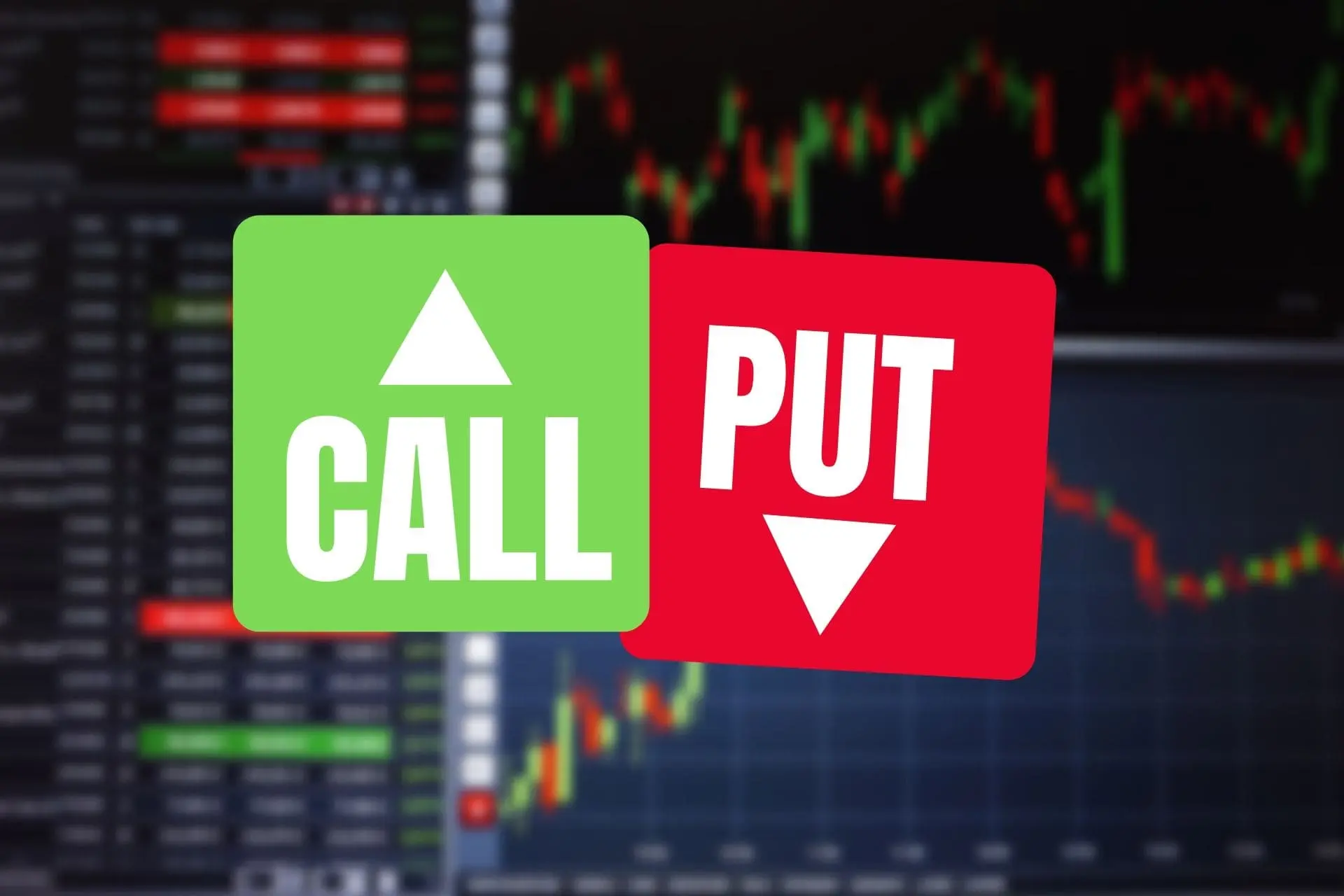Crypto Futures vs Crypto Options: What Is The Difference?
Written by Michael Hayes
Michael Hayes, a seasoned finance professional, enhanced his expertise by attending executive education programs in Finance at the prestigious Wharton School of the University of Pennsylvania. With a career spanning over 20 years, Michael has gained extensive experience in financial analysis, investment management, and strategic financial planning. His deep understanding of financial markets, coupled with his passion for continuous learning, has made him a trusted advisor in the field
Expert Reviewed
This article has been reviewed by crypto market experts at SCM to ensure all the content, sources, and claims adhere to the highest standards of accuracy and reliability.
Last Updated on July 2, 2025
In the growing world of cryptocurrency trading, derivatives like futures and options are becoming popular.
Understanding these financial products is key to navigating the crypto markets.
Crypto futures are contracts to buy or sell a cryptocurrency at a set price on a future date, useful for hedging against price changes or speculating on price movements.
In contrast, crypto options give you the right, but not the obligation, to buy or sell at an agreed price before the contract expires, requiring an upfront premium.
Trading futures means committing to the contract’s terms, impacting your strategy and risk management. Options, however, offer more flexibility, allowing you to decide based on market conditions.
Both derivatives are powerful tools for managing risk or leveraging positions in the market.
Understanding their benefits and risks will help you make informed decisions that match your investment goals in the fast-paced crypto market.
Crypto Options Trading vs Crypto Futures Trading
In the cryptocurrency market, derivatives such as futures and options play vital roles. These financial instruments derive their value from underlying digital assets like Bitcoin or Ethereum.
- Crypto Futures: You’re engaging with a contract that obligates you to buy or sell a cryptocurrency at a predetermined price on a specified date in the future. This tool is extensively used for hedging and speculation.
- Crypto Options: On the other side, crypto options provide you with the right, but not the obligation, to buy (call option) or sell (put option) a cryptocurrency at an agreed-upon price before or on the expiry date. Here, you pay a premium for the contract’s flexibility and assurance.
Key Characteristics
- Derivative Nature: Both are derivatives, meaning they gain value from an underlying cryptocurrency.
- Market Positioning: Futures and Options enable you to hedge against market volatility or speculate on price movements without directly holding the asset.
Differences at a Glance: Crypto Futures vs Options
| Aspect | Crypto Futures | Crypto Options |
|---|---|---|
| Obligation | Yes | No |
| Right | Fixed contract terms | To buy/sell (not must) |
| Premium | Not applicable | Paid by the option buyer |
| Risk Exposure | Potentially higher | Limited to the premium |
Understanding these differences is critical for your trading strategy as they directly influence risk and potential rewards within the crypto market.
Remember, with futures, you commit to the future transaction, whereas options give you a choice without binding commitment, with the cost of a premium.
What Are Crypto Futures & Crypto Options?
Cryptocurrency Futures:

A futures contract is an agreement you enter that obligates you to buy or sell an asset, such as cryptocurrency, at a predetermined price at a specific time in the future.
When you engage in futures trading, it doesn’t matter whether you have an optimistic or pessimistic view of the market; you are expected to fulfill the contract’s terms.
This means that you are bound to the transaction regardless of the market’s condition at the contract’s expiration.
| Feature | Futures Trading |
|---|---|
| Obligation | You are obligated to execute the trade. |
| Premium | No premium is paid upfront. |
| Risk Management | Includes safeguards like margin requirements and insurance funds. |
Cryptocurrency Options:

Options contracts offer you a right but not an obligation.
In the realm of cryptocurrency, this translates to having the choice to buy (call option) or sell (put option) the underlying crypto at a set price before the expiration date of the contract.
If market conditions aren’t favorable, you can choose not to exercise this option. However, to have this flexibility, you’ll need to pay a premium when initiating the contract.
| Feature | Options Trading |
|---|---|
| Obligation | No obligation to execute, only the right to do so. |
| Premium | You pay a premium for the contract. |
| Flexibility | More strategies are available due to the ability to select and execute. |
Both futures and options are derivative products in the crypto market, meaning their value is derived from the underlying cryptocurrency.
They allow you to speculate on the price movements of crypto assets without directly owning them.
Similarities Between Crypto Futures and Crypto Options
In the realm of cryptocurrency trading, crypto futures and crypto options are two financial instruments that share common ground. Here are the key similarities:
- Derivatives with Underlying Assets: Both futures and options are derivatives, meaning their value comes from an underlying cryptocurrency asset such as Bitcoin or Ethereum. You do not own the cryptocurrency directly, but instead, you engage with a contract that tracks its price movement.
- Hedging Tools: These financial instruments serve as protective measures against the volatility of the crypto market. By using futures and options, you can hedge your investments, which is a practice aimed at reducing potential losses due to price fluctuations.
- Speculative Instruments: Aside from hedging, both futures and options are also utilized for speculation. You leverage these contracts to bet on the future price direction of the underlying asset, aiming to profit from the price movements.
Here’s a concise comparison for quick reference:
| Feature | Crypto Futures | Crypto Options |
|---|---|---|
| Nature | Contractual Obligation | Right, Not Obligation |
| Purpose | Hedging, Speculation | Hedging, Speculation |
| Underlying Value Source | Cryptocurrency Asset | Cryptocurrency Asset |
Remember that engaging in futures obligates you to buy or sell the asset at the specified price upon contract expiration, while options give you the choice but not the obligation to do so.
The flexibility and potential risk mitigation make both instruments important for your trading strategy.
Critical Differences Between Crypto Futures and Crypto Options
Obligation vs. Right: Crypto futures obligate you to buy or sell the underlying cryptocurrency at a specified price on a predetermined date.
Once you enter into a futures contract, you’re bound to execute the transaction. In contrast, crypto options grant you the right, but not the obligation, to buy or sell at a pre-set price before the contract expires.
This fundamental distinction allows you more flexibility with options as you can choose not to exercise your right if it’s not beneficial.
Risk Exposure: Options tend to carry less risk for the buyer because the most you can lose is the premium paid for the option contract.
Essentially, you’re purchasing the possibility to execute a trade in the future, but if market conditions don’t favor your position, you can opt-out without further financial obligation.
Futures, on the other hand, can expose you to potentially high risks; since they’re a binding commitment, you have to fulfill the contract terms regardless of market conditions at the time of contract expiration.
Premiums: With options, you must pay a premium to have the right to decide whether to execute the trade. This premium is the cost of having the flexibility to avoid executing the trade if it goes against your interests.
This is not the case for futures, which do not require an upfront premium but may entail other types of costs related to the execution of the contract.
These differences play a significant role in your strategic approach to trading cryptocurrencies using derivatives.
Consider your risk tolerance, investment goals, and the capital you’re willing to commit when choosing between futures and options in the crypto market.
Choosing Between Crypto Futures and Crypto Options
Your Investment Profile: Before deciding between futures and options for trading cryptocurrencies, consider your risk tolerance.
Futures contracts oblige you to buy or sell the underlying crypto asset at a predetermined price on a set date, posing a higher risk and potentially unlimited losses.
Conversely, options give you the right but not the obligation to buy or sell, offering a safety net since you can choose not to exercise your choice if the market is unfavorable, limiting your risk to the premium paid.
Market Conditions:
- Volatility: If the market is highly volatile, options can provide a more controlled environment due to the predetermined costs. Futures can be more profitable but also riskier in such conditions.
- Liquidity: Futures are often more liquid, having higher trading volumes, which generally means more efficient pricing and easier entry or exit from positions.
Experience Matters: Futures trading may suit you if you’re experienced in predicting market movements, comfortable with leveraging positions, and willing to manage potential losses.
Options trading may appeal if you prefer more strategic positions with defined risks, especially if you’re still building your expertise.
| Trading Instrument | Risk Profile | Investor Suitability |
|---|---|---|
| Futures | High; unlimited risk | Experienced; risk-tolerant |
| Options | Lower; premium as max loss | Novice to Experienced, risk-averse |
When choosing, consider your comfort with risk and keenness to monitor market conditions. Your skill in navigating market volatility and understanding liquidity should also influence your decision.
Remember, it’s about finding a balance that aligns with your investment strategy and goals.
Frequently Asked Questions
In this section, you’ll find concise answers to some common questions about crypto futures and options trading to help you make informed decisions.
What are the key differences between trading crypto futures and crypto options?
Crypto futures are contracts that bind you to buy or sell a cryptocurrency at a predetermined price on a specific date. Conversely, crypto options give you the right, but not the obligation, to buy or sell at a particular price before the contract expires.
Can you explain the profitability comparison between trading futures, options, and stocks in the crypto market?
The profitability of trading futures and options in crypto varies greatly.
It depends on market conditions, with options providing a potential for high returns with limited risk, while futures can lead to unlimited profit or loss.
Trading in stocks is distinct since stock ownership gives you a share in the company, whereas crypto derivatives do not.
What factors should one consider when choosing between crypto futures and options trading?
Considering your risk tolerance, market outlook, and capital availability would be best.
Options may suit you if you seek flexibility with limited risk, while futures could be preferable if you’re prepared for higher risk and seek hedging opportunities or leverage effects.
Conclusion
Crypto futures and options are valuable instruments in your trading strategy, each tailored to meet different risk and investment profiles.
Futures contracts obligate you to buy or sell an asset at a fixed price on a future date, presenting an effective tool for those willing to undertake the obligation in exchange for hedging or speculative opportunities.
Options, contrastingly, grant you the right, not the obligation, to purchase or sell at a predetermined price, offering a strategic advantage for limiting risk exposure to the premium paid.
Whether you lean towards futures for their cost-effective nature and high liquidity or options for their risk-limited structure, your choice depends on your financial objectives, market outlook, and risk tolerance.
- Futures may be suitable for higher leverage, such as an allowing position with less capital.
- For flexible strategies: Options can be optimal, permitting various combinations and spreads.
Remember, both mechanisms require a thorough understanding of market conditions and potential risks. Propel your cryptocurrency ventures forward by leveraging the distinct features of futures and options to suit your financial goals.

